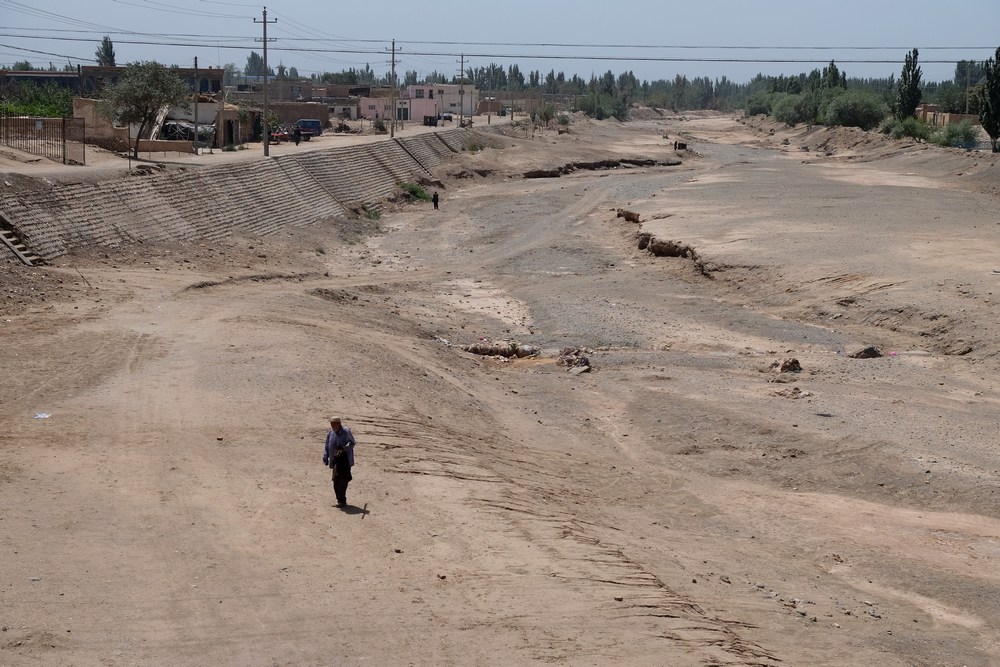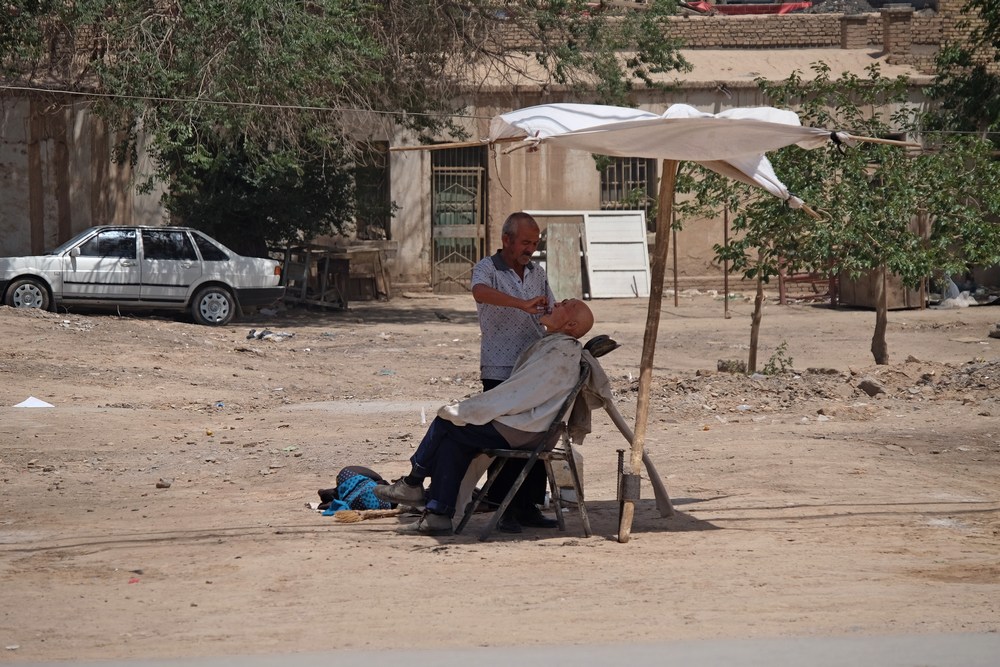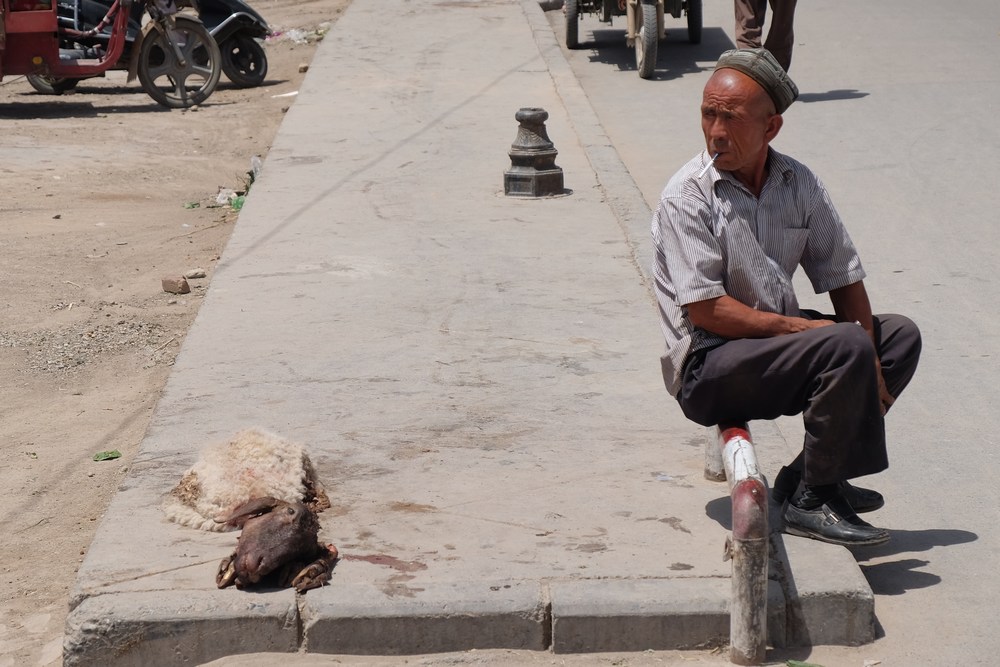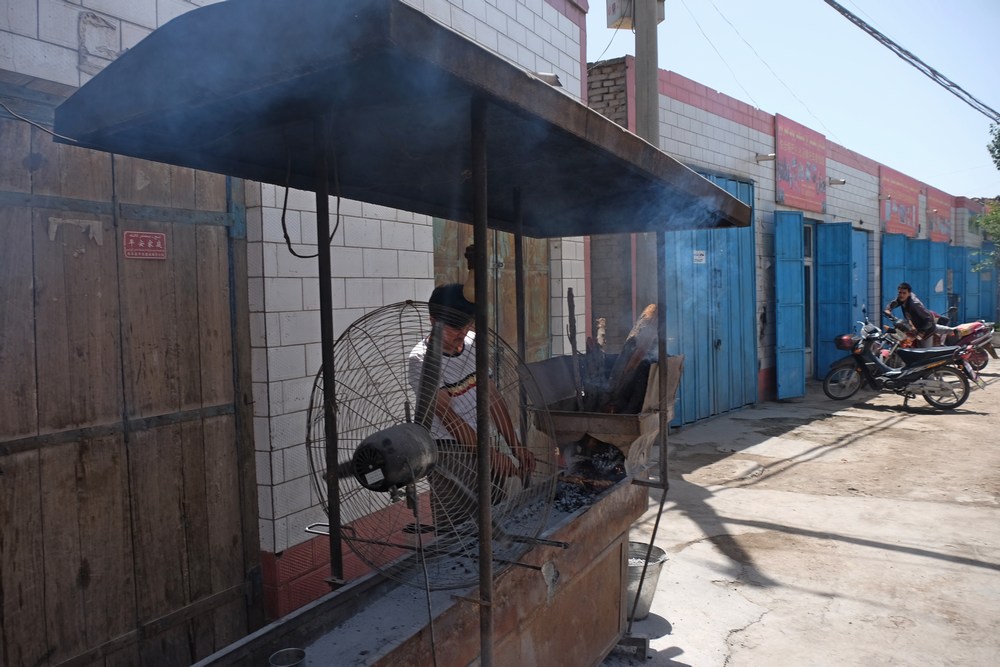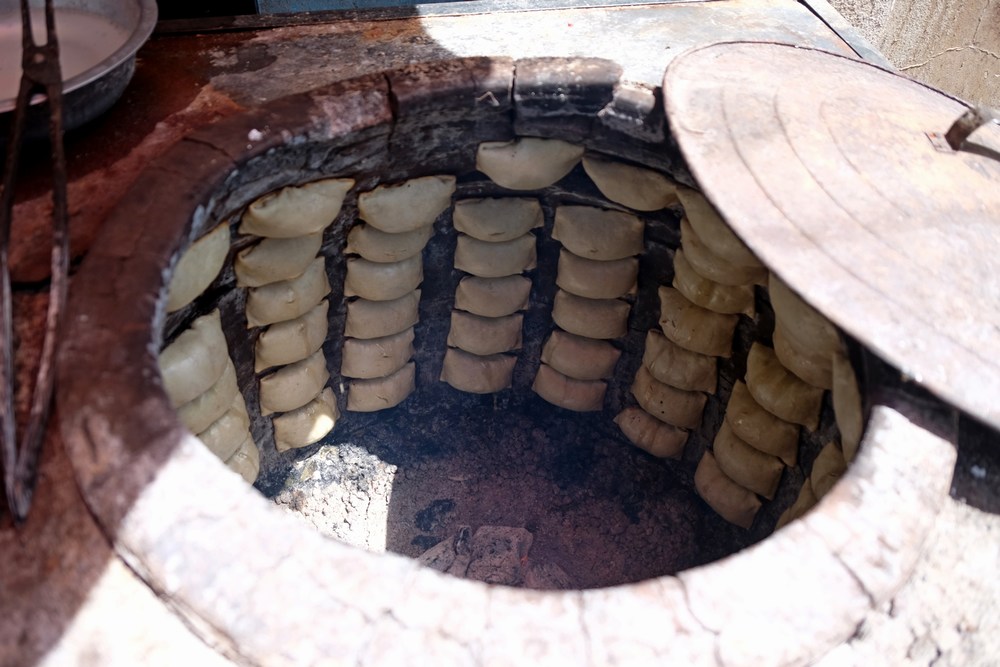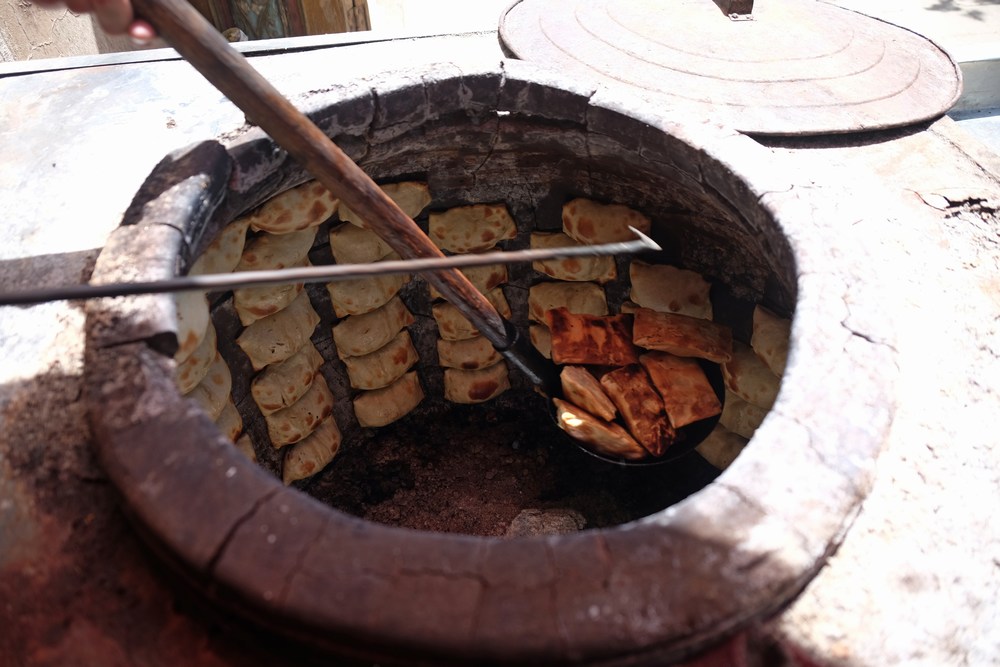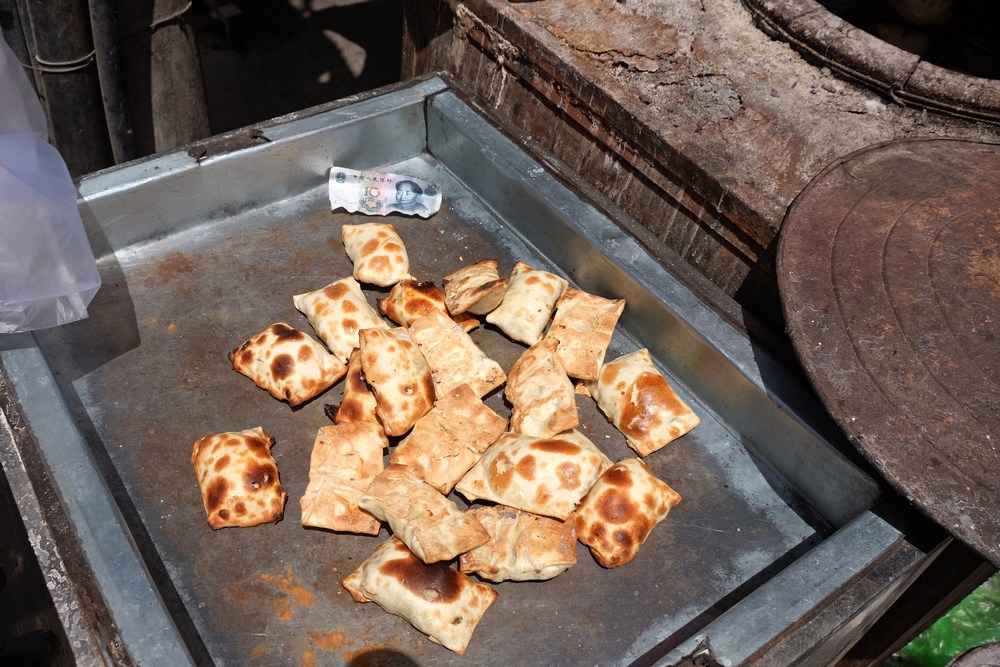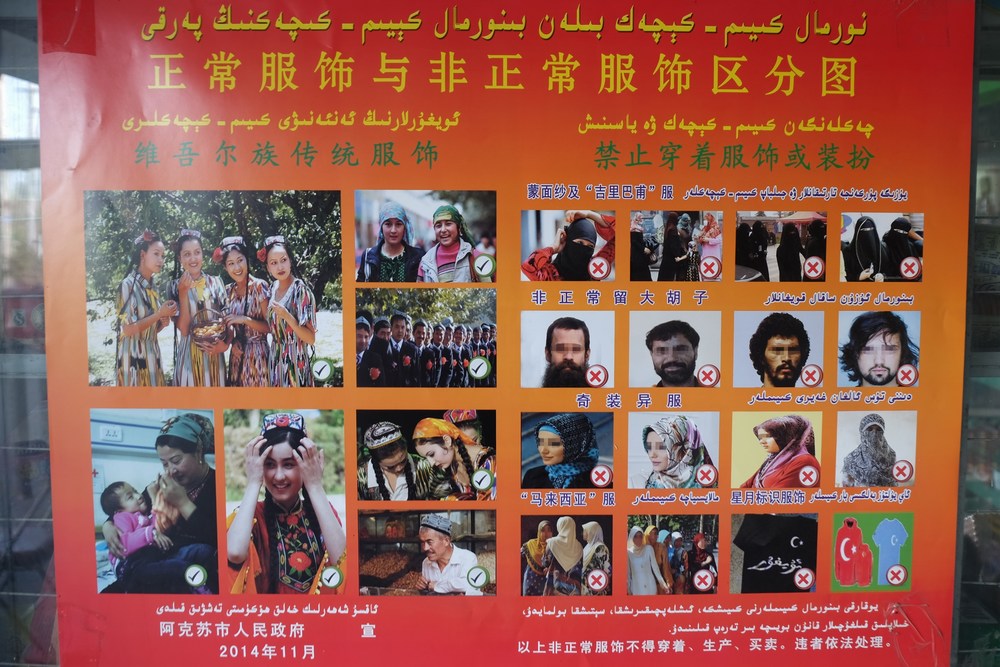As I venture deeper into Xinjiang, a few things have become apparent.
1. The Internet here really sucks. I mean Internet in China isn’t great by any measure, but in Xinjiang, we’re talking about Ugandan levels of bad. In the 1980’s. With Idi Amin running the local telco. Whatsapp (and other instant messaging appas like Line) still don’t work, VPN is still spotty and don’t get me started (again) on bandwidth.
2. Hotels discriminate between local and foreign clientele. It may be “part of China’s rustic charm” when you have to do it once or twice. But wasting two hours every day hunting for a bed when you should be hunting for things to see, eat and do, does gets frustrating after a while. However, the little basket of male performance enhancers seem to be a recurring theme. Hard-coded, one might say.
3. The riot shields and security checkpoints are everywhere. In Turfan, Kuqa and Akesu, there’s a garrison every few hundred metres with 6-10 armed soldiers behind coils of barbed wire, sometimes with an armoured personnel carrier inside. The security personnel at railway and bus stations seem to be obsessed with confiscating cigarette lighters. Perhaps they are concerned that people will start lighting up ACME-labelled sticks of dynamite, like Wile-e-coyote.
Anyway, Kuqa is as isolated at it gets – almost exactly between Turfan and Kashgar, and sandwiched between the impressive Tianshan Mountains to the north and the immense Talamakan desert to the south. It was a major Silk Road stop, and still functions as a halfway point of sorts. The new town, predictably, has overtaken the old town in terms of population and infrastructure but certainly not in historical significance and character. Fortunately a 5 min taxi ride gets you from one to the other.
I took a stroll in the old town at midday and it’s obvious that very little has changed. Donkey carts somehow survive amidst electric three-wheelers, the Sunday market is by the river, where it has been for hundreds of years, and its vendors still sell the eternal staples of flatbreads baked on-site in tandoors, various cuts of lamb and fresh local produce. The selection has grown somewhat more international with the onset of modern logistics. So you can procure an iPhone too, if you wish. Although wouldn’t that qualify as China’s local produce too?
On the subject of lamb, you know you’ve had too much when you start detecting its distressingly distinctive aroma in your pee. I was mildly alarmed, until I stepped into the public toilets. Well, if you can’t look like a local, or speak like one, the least you can do is smell like one.
